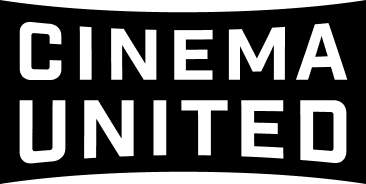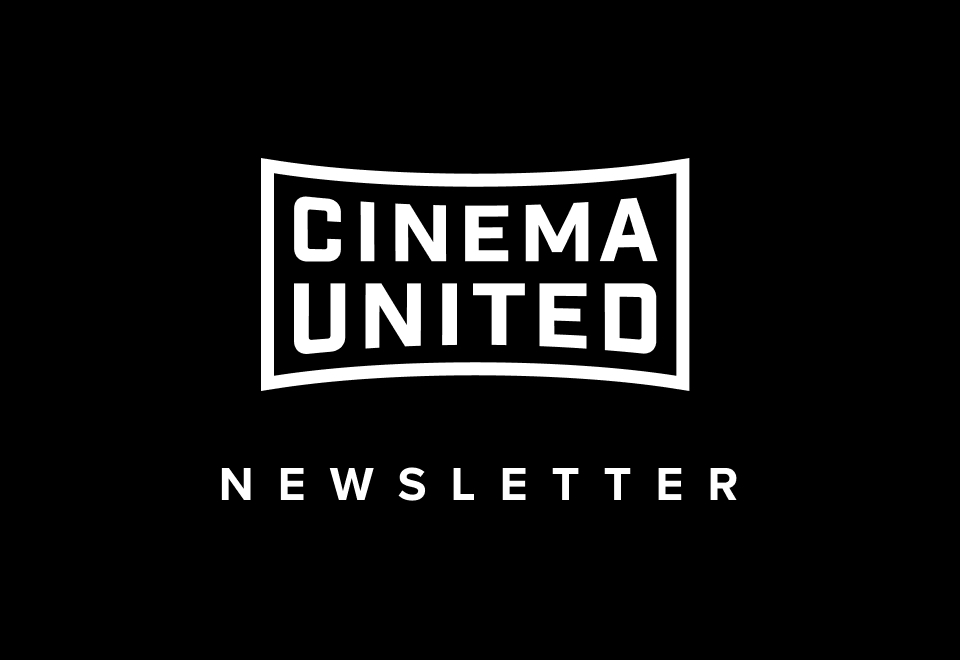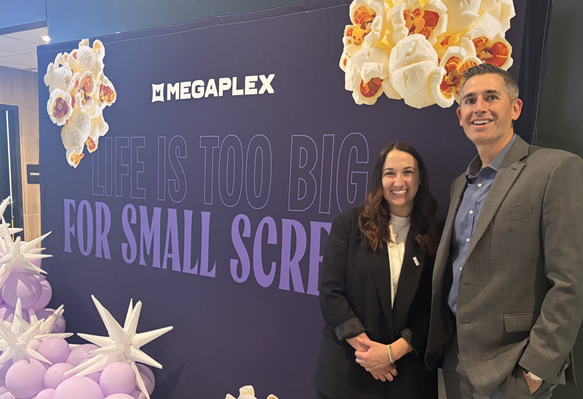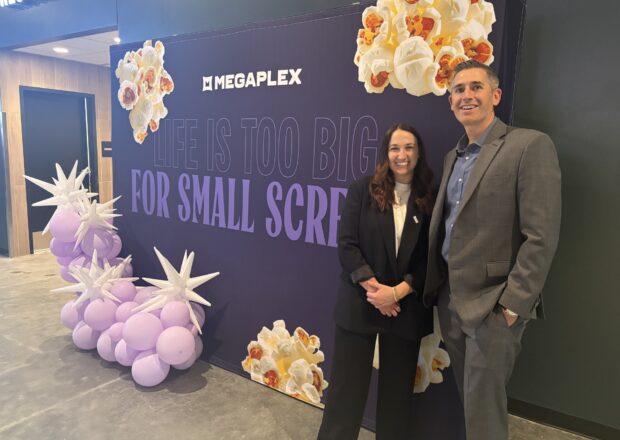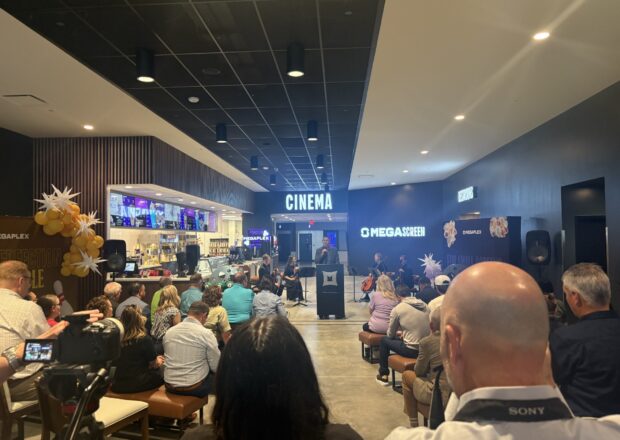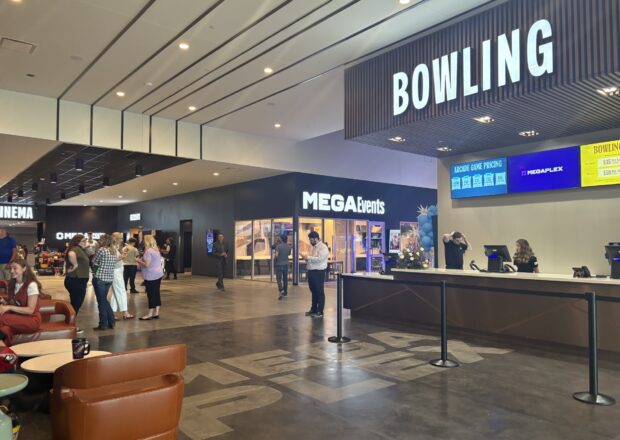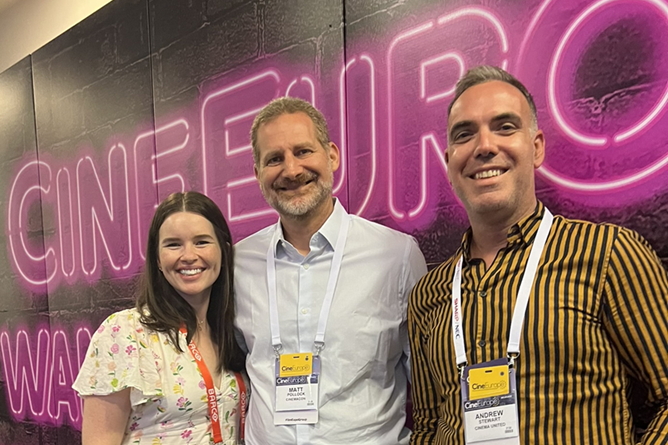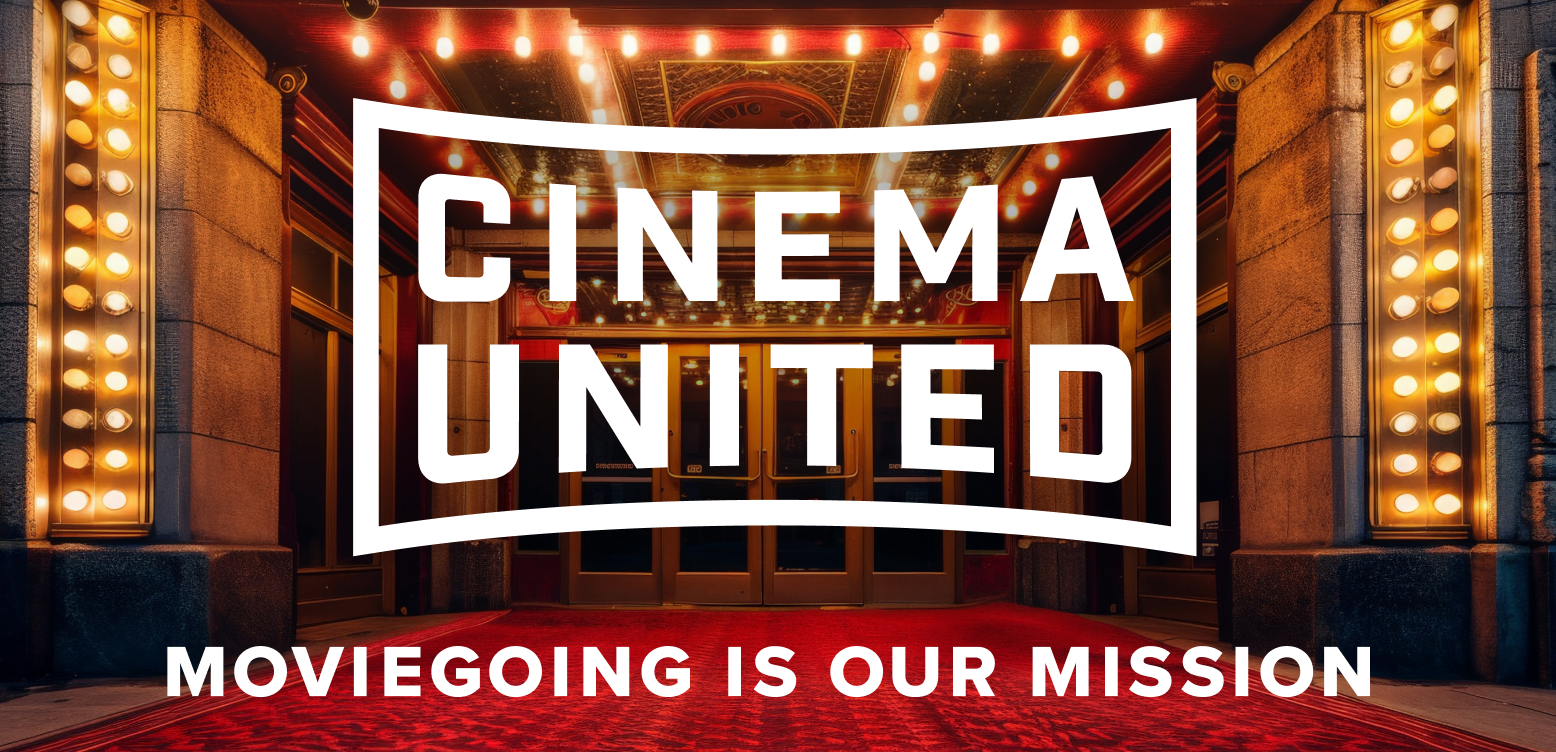LOS ANGELES, CA – July 29, 2025 – Cinema United and The Cinema Foundation are introducing Date Night @ the Movies, a new national moviegoing event on Friday, August 22. The evening is a celebration of America’s favorite entertainment pastime featuring two-for-one treats – with discounts ranging from popcorn, drinks and other concessions to surprise movie theatre promotions – at thousands of participating locations across the country.
It’s the latest event in the year-long @ the Movies campaign. Previous events included National Popcorn Day (January 19) and Sneak Peek Showcase (April 22). Fandango, the nation’s leading online movie ticketing service, returns to the @ the Movies program as the presenting sponsor.
“Movies are better experienced together,” says Mike Bowers, Chair of The Cinema Foundation. “Date Night @ the Movies is a celebration of the long-lasting memories we create and share at the cinema. This one-night only event is all about enjoying the big screen with someone special, whether it’s your partner, best friend, new friend, family member or movie-loving plus one.”
“We are excited to join Cinema United and The Cinema Foundation in launching Date Night @ the Movies in theatres nationwide on August 22,” said Jerramy Hainline, EVP of Fandango. “Fandango is all about creating a memorable moviegoing experience. We hope we can help fans enjoy movie magic on the big screen while ordering their favorite theatre treats at discounted prices for a great night out at the movies.”
To find theatres and their individual offerings at your local movie theatre, visit AtTheMovies.co (website/app) or Fandango, and check out #TogetherAtTheMovies on social platforms.
ABOUT THE CINEMA FOUNDATION
The Cinema Foundation is a 501(c)(3) charitable non-profit dedicated to strengthening the cinema industry and engaging moviegoing audiences around the country. The Foundation promotes and enhances the exhibition industry through programming, events and activities, while spearheading the development of vital industry data, research and consumer insights, education and community involvement to advance the moviegoing experience. For additional info, please visit thecinemafoundation.org.
ABOUT CINEMA UNITED
Founded in 1948, Cinema United is the largest exhibition trade organization in the world, representing more than 31,000 movie screens in all 50 states, and more than 30,000 screens in 80 countries worldwide. Its membership includes theatres of all sizes, from the largest cinema chains to one-screen theatres in cities and towns around the world. For additional information, please visit cinemaunited.org.
ABOUT FANDANGO
Fandango digital network provides unrivaled, instant access to all things movies and TV, enhancing fan enjoyment across the entire entertainment journey. The portfolio serves more than 50 million unique visitors per month and includes leading online movie ticketer, Fandango, which tickets for 31,000 U.S. movie screens; world-renowned entertainment review site, Rotten Tomatoes; and Fandango at Home (previously Vudu), the on-demand streaming service offering the industry’s best selection of 4K UHD titles and more than 250,000 new release and catalogue movies and next day TV shows.
